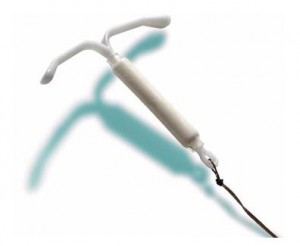
FREE MIRENA CASE EVALUATIONS: CALL 1-800-632-1404
The trial of Mirena side effects lawsuits centralized under the federal MDL is set to begin in March 2016, with six litigations expected to become part of the first bellwether proceedings. About 2,000 product liability claims have been filed against manufacturer Bayer for uterus perforation, damage to internal organs, and other serious injuries caused by spontaneous migration of Mirena IUD. A Finnish research report published last month suggesting potential association between the enhanced risk of breast cancer in women and progestin levonorgestrel released by the IUD birth control spells more trouble for the contraceptive reported for over 47,000 side effects since 2008.
Mirena Side Effects Lawsuit Trial Scheduled
New York District Judge Cathy Seibel, who heads the federal MDL centralization of Mirena lawsuits, has set March 7, 2016 as the date for the first bellwether trial to commence. In an order dated July 29, 2014, she spelled out the detailed procedure and schedule for the first federal trial of Mirena IUD side effects claims. The court identified 12 litigations involving the IUD birth control for the Initial Deposition Pool on August 11th, and the list will be trimmed down to six, prior to the start of the expert witness discovery process in May next year.
There are more than 1,000 Mirena side effects lawsuits centralized at the New York southern district court under the federal MDL provision. A large number of these IUD side effects claims blame the spontaneous migration of the birth control implant for intense internal injuries and surgical interventions the plaintiffs had to undergo. While the contraceptive dislocation resulted in users getting pregnant unsuspectingly, Mirena IUD uterus perforation forced hundreds of women to have hysterectomy or invasive surgeries. Most of the complainants needed surgical removal of the IUD birth control implant found floating in the abdomen or embedded to internal organs.
At least 960 Mirena side effects lawsuits are centralized at a New Jersey state court and the trial is expected to commence in the second half of 2015. A 24-year-old plaintiff had two surgeries to remove the displaced Mirena IUD that penetrated as far as her liver. Another mother of two had a sternotomy or an incision through the chest to remove the birth control implant detected embedded to her stomach.
Major Mirena Side Effects Injuries
There are over 70,000 instances of Mirena side effects reported on the MedWatch. The most reported IUD side effects include the following:
- Mirena migration and injury
- Mirena removal surgery
- Uterus perforation
- Hysterectomy
- Damage to fallopian tube
- Menopause disorders following removal and additional surgeries
- Post-removal problems and miscarriage
- Infection, inflammation, and infertility
- Painful ovarian cysts and pelvic diseases
- Ectopic pregnancy
- Vaginitis, vaginal scar, and angioedema
Mirena Side Effects Linked to Breast Cancer Risk
In July 2014, a Finnish research study warned of potential connection between Bayer’s Skyla and Mirena IUD birth control implants and enhanced breast cancer risk in users. Published in the Obstetrics & Gynecology journal, the report discovered a 20 percent increase in the risk of breast cancer in women using Mirena IUD to treat heavy periods. Researchers looked into the medical history of thousands of women who had IUD implants between 1994 and 2007 to treat menorrhagia or abnormal heavy menstruation to find out carcinogenic impacts of Mirena side effects.
At least 2,781 cancer cases, including 1,542 with breast cancer, were discovered linked to levonorgestrel-based IUDs. Though there was a drop in the number of ovarian and endometrial cancer cases, a significant increase in breast cancer was noticed among Skyla and Mirena IUD users.
Victims of Mirena side effects have the right to seek compensation for their suffering, health complications, life-long trauma, loss of employment, and medical expenditure. To know about the process for filing Mirena lawsuit and defective medical device product liability claims citing IUD migration and perforations, please contact us or call on 1-800-632-1404.
To Contact a Mirena Injury Lawyer:
CALL TOLL FREE: (800) 632-1404
EMAIL: clicking here.
FILL OUT THIS FORM FOR FREE HELP:
NOTE: Our team of attorneys will review potential cases for all fifty states, including Alabama Alaska Arizona Arkansas California Colorado Connecticut Delaware Florida Georgia Hawaii Idaho Illinois Indiana Iowa Kansas Kentucky Louisiana Maine Maryland Massachusetts Michigan Minnesota Mississippi Missouri Montana Nebraska Nevada New Hampshire New Jersey New Mexico New York North Carolina North Dakota Ohio Oklahoma Oregon Pennsylvania Rhode Island South Carolina South Dakota Tennessee Texas Utah Vermont Virginia Washington West Virginia Wisconsin and Wyoming.
